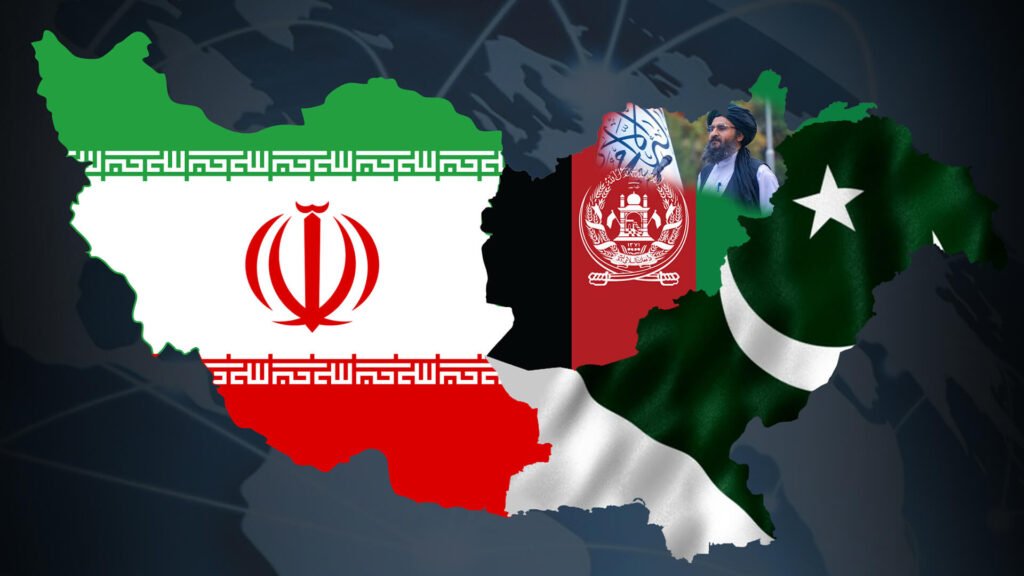The Afghans believed in a division of sovereignty rather than a division of the Indian subcontinent between Muslims and Hindus, which will satisfy Indian Muslims and keep the Hindus away from Afghanistan. As mentioned earlier, according to the Afghans, forming a so-called Union of India, where Hindus would dominate Muslims, would only lead to ‘chaos and ruin,’ and would not be acceptable to Afghanistan but at the same time, Afghans chose not to have cordial relations with Pakistan when it was founded. Pakistan and Afghanistan share a 2650 km long disputed border, famously known as the Durand line. Afghanistan had opposed Pakistan’s membership in the United Nations in 1947 and relations between the two states have been unfavorable since then.
According to William Fraser-Tytler, the Former British Minister in Kabul the Afghans used to say, “If they [the British] were going there was only one possible solution to the Indian problem, and that was a division of sovereignty between Muslim and Hindu [sic]. Such a solution, difficult though it might be, had some small chance of success; no solution based on a Union of India could lead to anything but chaos and ruin. It is interesting to recollect that this point of view was held in Kabul long before its validity was admitted in Britain or India.”
Pakistan enjoyed friendly relations with the Taliban regime and was one of those three countries, which had officially recognized the regime. After 9/11, Pakistan not only abandoned support to the Taliban regime but provided bases to the US for its military campaign against Al-Qaida and the Taliban.
Pakistan suffered substantial losses in terms of human lives by partnering with the US in its global war against terrorism. Since the resurgence of the Taliban in 2003, Pakistan has been suspected of sheltering Taliban leaders and fighters. In August 2017, President Trump warned Pakistan to deny safe havens to the terrorist organizations that posed threat to the peace and security of Afghanistan. In January 2018, the Trump Administration postponed aid to Pakistan thus obstructing the flow of hundreds of millions of dollars in aid. Pakistan denies allegations of supporting the Taliban and claims to be the biggest supporter of peace in Afghanistan. Pakistan has blamed India and Afghanistan’s intelligence agencies for collaborating against Pakistan.
The Pak-Us relations have improved after the US Taliban peace deal was signed in February 2020, and the US envoy, and ambassador, Khalilzad has repeatedly praised Pakistan for its positive role in the peace process. Pakistan has also committed to playing a positive role by convincing the Taliban over a ceasefire and meaningful intra-Afghan dialogue. Pakistan favors an inclusive government in Kabul, comprising all the stakeholders including the Taliban.
As the US is ending its two-decade war in Afghanistan, Pakistan’s alleged interference in Afghanistan has become a major topic of discussion in the Afghan media. An Afghan lawmaker said on TV talk shows, “You must be aware that we are under attack from Pakistan. It is not the Taliban that we are fighting: We are dealing with Pakistan’s proxy war” “The Taliban do not have any plan for Afghanistan, and we are not ready to accept Pakistan’s plan.
The foreign powers and neighboring countries have in fact tried to resolve these problems. Yet some Afghan circles accuse Pakistan of meddling in the country’s internal affairs and further intensifying the humanitarian crisis. Contrarily, Pakistan disengaged itself from Afghanistan’s domestic issues and provided shelter to more than 3 million Afghan refugees. It has also provided economic and educational assistance. While Pakistan itself has suffered because of the Afghan war due to the proliferation of drugs and weapons as well as a surge in extremism and sectarian violence.
Prolonging military warfare is not recommended at all in the context of Pakistan and China’s joint venture of China Pakistan Economic Corridor (CPEC). Peace and stability in Afghanistan can ensure Sino-Pakistan expansionism via developmental programs and strengthening of-economic ties. Moreover, the connection of CPEC with Central Asia Republics (CARs) also depends upon stability in Afghanistan. Pakistan needs to consider the following recommendations:
• Pakistan and Afghanistan must have joint media programs in order to counter the Anti-Pakistan narrative.
• Sign Memorandum of Understanding (MoUs) to train the Afghan Army and police forces by Pakistan and facilitate relevant equipment including weapons, it can be a good market for our defense production
• Informal trade can be formalized with a subsidized rate
• Student Exchange programs must be carried out
